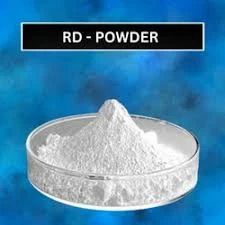
ഡിസം . 05, 2024 16:48 Back to list
Exploring the Benefits and Uses of Hydroxyethylcellulose in Natural Products
The Benefits and Applications of Hydroxyethylcellulose A Natural Polymer
Hydroxyethylcellulose (HEC) is a water-soluble polymer derived from cellulose, a natural polymer found in the cell walls of plants. This versatile substance has garnered significant attention across various industries due to its unique properties, sustainability, and compatibility with a range of formulations. As a derivative of natural cellulose, HEC not only presents environmental advantages but also offers numerous benefits in various applications, from personal care products to pharmaceuticals and food.
Understanding Hydroxyethylcellulose
Hydroxyethylcellulose is produced through the chemical modification of cellulose, which is abundant in nature. By introducing hydroxyethyl groups to the cellulose structure, HEC gains enhanced solubility and functionality while retaining the inherent characteristics of cellulose. The resulting polymer is free of toxic substances and has a high degree of purity, making it a safe and effective component in a wide variety of formulations.
One of the key features of hydroxyethylcellulose is its ability to form viscous solutions when mixed with water. This property is crucial for applications requiring thickening, stabilizing, or improving the texture of products. Additionally, HEC is nonionic, meaning it does not carry a net electrical charge. This characteristic allows it to be used in formulations with varying conditions, as it does not interfere with other ingredients.
Applications of Hydroxyethylcellulose
1. Personal Care and Cosmetic Products Hydroxyethylcellulose is widely used in the formulation of lotions, creams, shampoos, and conditioners. Its thickening properties help enhance the texture and overall feel of the product, providing a luxurious experience for consumers. Furthermore, HEC acts as a stabilizer for emulsions, ensuring that oil and water components do not separate. Additionally, its ability to form a thin film on the skin or hair provides a protective barrier, enhancing the moisturizing attributes of personal care products.
2. Pharmaceuticals The pharmaceutical industry also benefits from the use of hydroxyethylcellulose. It serves as a binder in tablet formulations and as a thickening agent in gels and creams. HEC's biocompatibility and non-toxic nature make it an ideal choice for drug delivery systems. Moreover, its ability to control the release rate of active ingredients enhances the efficacy of medications, making it invaluable in creating sustained-release formulations.
hydroxyethylcellulose natural

3. Food Industry In the food sector, hydroxyethylcellulose acts as a thickener, stabilizer, and emulsifier. It is commonly found in products such as sauces, dressings, and bakery items. HEC improves the texture and mouthfeel of food products while ensuring uniformity and preventing separation. Additionally, its natural origin aligns with the growing consumer demand for clean-label ingredients, supporting healthier and more sustainable food options.
4. Construction Hydroxyethylcellulose is also utilized in construction materials, particularly in mortars and plaster. Its water retention properties aid in preventing rapid dehydration, allowing for better curing and adhesion. By enhancing the workability of cement-based products, HEC contributes to the durability and longevity of construction materials, making it an essential additive in the building industry.
5. Agriculture In agriculture, HEC is employed as a soil conditioner and a carrier for herbicides and pesticides. Its ability to retain moisture helps improve soil quality and promote plant growth. Furthermore, HEC can enhance the distribution of active ingredients in sprays, making it easier for farmers to apply chemicals effectively and uniformly.
Environmental Considerations
As a natural polymer derived from renewable resources, hydroxyethylcellulose presents a lower environmental impact compared to synthetic alternatives. Its biodegradable nature allows for safe disposal without harming the ecosystem. The shift towards sustainable practices in various industries further highlights the importance of HEC as a green ingredient that aligns with global efforts to reduce pollution and reliance on petrochemicals.
Conclusion
In conclusion, hydroxyethylcellulose is a remarkable natural polymer that offers numerous benefits across various sectors. Its versatility, safety, and efficacy make it a preferred choice in personal care products, pharmaceuticals, food, construction, and agriculture. As industries increasingly prioritize sustainability and eco-friendly solutions, the demand for hydroxyethylcellulose is likely to grow, making it a compound to watch in the years to come. Its ability to improve product performance while maintaining environmental integrity positions HEC as a cornerstone in the development of innovative and sustainable formulations for the future.
-
Unlocking the Benefits of HPMC Products: A Gateway to Versatile Applications
NewsAug.07,2025
-
Unleashing the Potential of HPMC Ashland: A Comprehensive Look
NewsAug.07,2025
-
Tile Bonding Cellulose: The Key to Superior Adhesion and Durability
NewsAug.07,2025
-
Hydroxypropyl Methylcellulose Powder: The Versatile Component in Modern Pharmaceuticals
NewsAug.07,2025
-
Hydroxyethyl Cellulose: The Versatile Solution for Various Industries
NewsAug.07,2025
-
Hydroxyethyl Cellulose (HEC): The Versatile Polymer for Various Applications
NewsAug.07,2025







